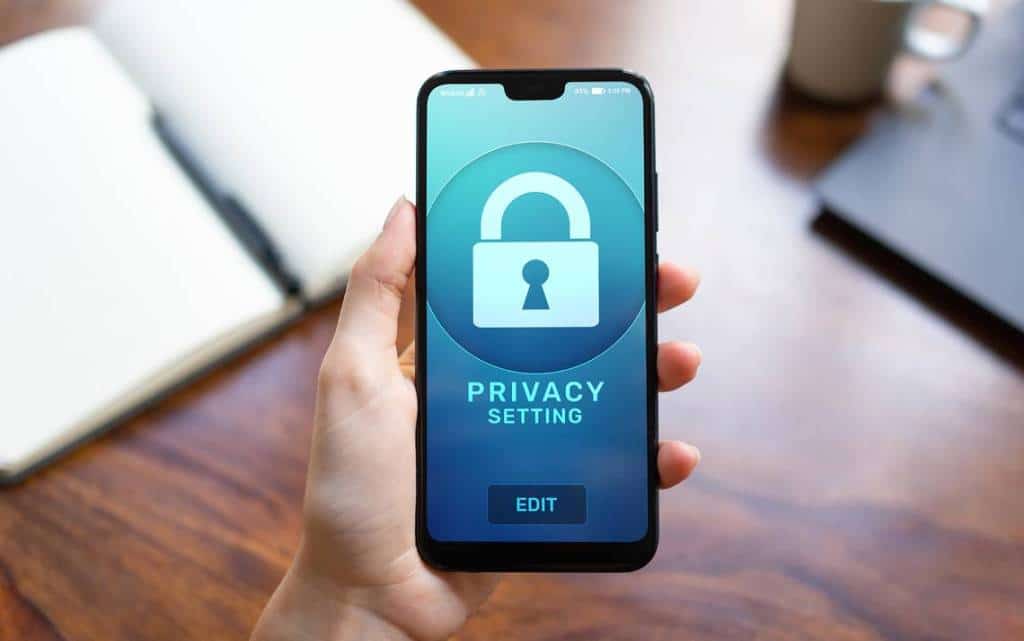News
Top Tips to Keep Sensitive Information on Your Cell Phone Secure

While it is great how cell phone and internet technology has connected us, we cannot ignore some of the challenges and dangers that come with putting our important and sensitive information inside it and in the greater cyberspace.
For all the convenience of being able to check your email, buy products, and communicate with other people around the world with a simple screen tap, there is malware, scammers, and fraudulent products, all of which are trying to squeeze you for money.
Fortunately, just using a few simple common sense and common tech tips can protect you from these threats.
Share With Care
The issue with the internet is that it’s not just you, it’s everyone. There is a tendency when visiting web pages and social media accounts to start to think that the most natural thing in the world is to give regular updates to every bit of your life, upload every photo you take on your camera, and move every part of your life online. Suddenly going into a bank and talking to a teller is very old fashioned, and having the bank’s app to quickly transfer money seems to be the way to go.
This change in society is happening more and more often, but this means there are ways for scammers to take advantage of some over-sharing. If you are chatting with your friend over social media, you might just give them your phone number in a post, not realizing that it’s not just your friend that can read it, but everyone. That means everyone can now ‘call’ you, or sell the number quickly to a telemarketer (you might have hundreds of messages offering to become a trans sugar baby).
Telling everyone your name, putting your address out there, or even taking a selfie that might have anything valuable in the background (whether it be a credit card or expensive item) can lead people to try and figure out a lot more about you than you would want.
Don’t Click On That
Most viruses are sent to you via your email, by email addresses that look like your friends, or are exactly from your friend, because someone else has hacked their email account and sent it to everyone on their contact list. Because you know this person, you don’t think twice about clicking on a link in the message that might say ‘funny video’. But in reality, it is a download link that puts a very small computer program on your phone or laptop that takes over.
This program is a virus and might track every site you visit and everything you typed in to visit these sites (whether it be your bank app or a squirt gay site). Once this virus ‘sees’ your passwords, it sends the information to the scammers, and now they have access to all these sites (and maybe your bank accounts as well).
Too Good to Be True
Some scams aren’t exactly going to affect your phone, but are certainly going to be perpetrated through your phone. The more reliant you are on the device in your back pocket, the more it is a part of you. One of the oldest popular phrases is ‘caveat emptor’, and just as the buyer had to beware when at market stalls and shops, it should come as no surprise that it is just as true in cyberspace.
There are plenty of ad banners and sites promising wild deals, and they make the assumption that you will not read the fine print when it says you are only going to save 50% when you buy ten products at the same time. While reading the fine print to make sure you will not be bamboozled is not anyone’s idea of a good time, the real alarm bell in your head should be an amazing deal since you can naturally assume it will come with strings attached.
When there is a new product or service that is the latest fad, it is easy to get caught up in the Group Fun, but buying the product for a great price when the news is reporting skyrocket prices means you might have just been hoodwinked.
The other big danger is buying a product that seems to have gotten great reviews, but when it finally arrives on your doorstep, you find it doesn’t look or work the way you expected it to. This is because some businesses online will have fake five-star reviews, giving the impression that the product is much, much better than it is.
One of the ways to sniff this out is to quickly check the reviews to see what is said. One line reviews should be suspect, and so should reviews that don’t even mention the product.
Keep Your Phone Up to Date
Your phone will be more susceptible to viruses and hacks the longer you have it because the longer a phone and its basic operating system is on the market, the more scammers know how to break into it. That’s why it’s important to download all the security updates that Apple, Google, or whatever phone company you have offers, and quickly. This is especially true if you buy a secondhand phone, as it is possible that the re-seller already knows plenty about the exact phone you have just bought.
It is good to learn what actually happens when you download an update. This is because just as the actual companies will send you notices to update the latest security or operating features, scammers will try to send you fake notices that look like the real thing (and what they want you to download is not good for your phone).






























